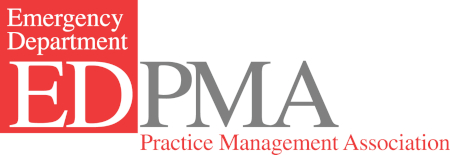
NSA I-Tact
If you are joining/unjoining a community, please email info@edpma.org so we can forward Outlook... View more
08.05.24 I-Tact Meeting Notes
-
08.05.24 I-Tact Meeting Notes
Next steps
- Patrick to share updated draft of Murphy
legislation once received from Legislative Council and JCT. - EDPMA team to draft title and objectives
for September 11th webinar on QPA inaccuracies. - Survey respondents to complete new quick
hit survey on IDR data by Labor Day. - Jennifer to finalize infographic on
abusive IDR process issue for workgroup C letter to departments.
Summary
New Team Members and TMA II Case
The team welcomed Sue, their newest member, and acknowledged her significant contributions to the organization, particularly in the area of quality measures and alternative payment models for emergency medicine. Ed also introduced the three work groups and outlined the agenda for the meeting, highlighting the discussion on the recently announced TMA II case, led by Catherine. Kathryn reminded the team that this discussion was in relation to the final rule.
QPA Regulations and Arbitration Controversy
Kathryn discussed the controversy surrounding the QPA not being the default answer for arbitration and the subsequent issuance of final regulations. She argued that many, including her team, found these regulations to be a rewording of existing laws and criticized their imposition of additional statutory requirements on arbitrators. Kathryn also presented a strong case for vacating certain regulations, asserting that they exceeded the departments’ authority and interfered with the arbitrators’ process. Ed highlighted the importance of standing in federal court and the potential for the case to be overturned if the issue was not resolved. The court’s decision was supported by a judge who concurred but raised concerns about the clarity of the decision.
TMA Cases Progress and DOJ Strategy
Kathryn and Ed discussed the progress of various legal cases, focusing on the Texas Medical Association (TMA) cases. They noted that TMA I, IV, and V were not appealed, while TMA II and III were, with TMAIII being the crux of the matter due to its impact on the calculations of the QPA. The team also discussed the strategy for the Department of Justice regarding appeals, with Kathryn and Jennifer agreeing that they would not appeal this case.
Regulatory Concerns and Upcoming Webinar
Ed and Patrick discussed various regulatory concerns and ongoing issues. Patrick mentioned that the team was working on a letter regarding non-compliance with major provisions of the NSA and the miscalculation of QPAs, which would be addressed to regulators. There was also a discussion about the Murphy legislation, with the next draft expected to be ready soon, and the outstanding issue of how to address ERISA plan noncompliance. A webinar was planned to address these issues, and a written summary of two upcoming discussions with CCIIO was to be provided. The content of a draft letter to the departments was still under review and would be amended depending on the outcomes of the CCIIO discussions.
Cooling Off Period and Survey Discussion
Ed and EDPMA discussed an upcoming call involving Stephanie, Sound Physicians, and Brian from CMS. The call was expected to address issues related to the cooling off period and advice given to IDREs. Additionally, Greg introduced a new survey focused on disputes and claims. The survey aimed to gather data on the number of disputes, unpaid disputes, disputes paid but with incorrect amounts, and changes made to patient cost sharing. The team also discussed the average length of time each claim has from filing to adjudication, with the aim to assess any changes due to portal closings in late 2023.
EDPMA Survey Initiative and Infographic Issues
Greg emphasized the importance of getting information to the right analysts and managers in the organization. EDPMA discussed a new survey initiative, which was developed quickly with input from multiple team members, aiming to collect data for advocacy, particularly with Congress returning in September. Ed highlighted the effectiveness of the survey in a previous congressional hearing. Jennifer then presented an issue with the infographic, where the non-initiating party won a dispute and later made an offer that was $6 higher than their initial offer, which she considered bad faith. Paul confirmed that his team was also experiencing similar issues, and Ed suggested that they would address this in a workgroup C letter to the departments.
IDR Operations Rule and Negotiation Tactics
The team discussed the proposed IDR operations rule, which would require respondents to accept offers within 15 days or provide reasons for non-acceptance. Concerns were raised about the 15-day threshold potentially not being sufficient to prevent system gaming and the additional costs associated with the IDR process. The team also discussed the tactics used in negotiations, with Jennifer emphasizing that non-initiating parties should act in good faith. Lastly, Jess suggested potential changes in the fall regarding penalties for non-responsive payers, which could impact the informal process.
Backlog Discussion and Updates
There was a discussion about the backlog of cases, with Jennifer and Paul noting some progress in resolving disputes after consistent outreach. Paul indicated that while there was still a significant backlog, they were seeing more results from the process than they were putting in. Jess and Aron also reported some movement in their respective teams. Ed suggested that the next meeting should include a discussion on the backlog with CCIIO and mentioned that there might be rescheduled calls in September due to his planned time off.
- Patrick to share updated draft of Murphy
Sorry, there were no replies found.
Log in to reply.
